Discover World Economic Forum
World Economic Forum

559 Episodes
Reverse
For the 13th consecutive year, the World Economic Forum has released its report on the top ten technologies set to change the world for the better. These technologies will speed our efforts to tackle everything from the energy transition to neurodegenerative diseases and more. Based on expert nominations and rigorous examination, the solutions drive home to leaders the increasing ways that technologies are converging and building on each other and showcase the importance of technology foresight as a key strategic tool to make meaningful change, integration and investment happen. Guests guiding us through this report for the fifth year include Bernie Meyerson, chief innovation officer emeritus at IBM, and Mariette DiChristina, Dean and professor of the practice of journalism at Boston University College of Communication. This interview was recorded in May 2025 in the New York office of the World Economic Forum. Top 10 Emerging Technologies for this year: - Structural Battery Composites - Collaborative Sensing - Green Nitrogen Fixation - Generative Watermarking - Engineered Living Therapeutics - GLP-1s for Neurodegenerative Diseases - Autonomous Biochemical Sensing - Next-Gen Nuclear Energy - Osmotic Power Systems - Nanozymes About this episode: Top 10 Emerging Technologies Report 2025: These are the top 10 emerging technologies of 2025: Transcript: https://www.weforum.org/podcasts/radio-davos/episodes/top-ten-emerging-tech-2025 Mariette DiChristina, Boston University: Bernie Meyerson: https://www.ibm.com/history/bernard-meyerson Related podcasts: Top 10 Emerging Technologies 2024: Beyond AI: the top-10 tech of 2023 set to change our lives: https://www.weforum.org/podcasts/radio-davos/episodes/top-10-emerging-technologies-2023/
Nadya Okamoto launched her nonprofit Period as a teenager at the height of startup mania, hustle culture and girlboss memes. It grew to become one of the largest youth nonprofits in the world, but the fast growth led to burnout and a harsh cost to her well-being. She talks about how she learned to value rest, set boundaries and get 10 hours of sleep a day – and the moment she decided to pass the leadership torch for the organization’s next phase. Her non-profit Period, one that got started distributing menstrual pads to the homeless in San Francisco, and her current startup August, a menstruation care brand, both deal with tackling access to women's health products, health equity and ending period poverty. She discusses the unique challenges leaders face in this space and the boundary pushing ways she leverages social media and grassroots organizing to bridge gaps in awareness and funding and drive positive conversations and change. She also shares her lessons from her work in non-profits, policy work and startups on how any leader can be more accountable to what their organization needs right now. About this episode: August: Period: Related report: Prescription for Change: Policy Recommendations for Women’s Health Research: Blueprint to Close the Women's Health Gap: How to Improve Lives and Economies for All: Related podcasts: 7 women leaders on the books that shaped their lives: https://www.weforum.org/podcasts/meet-the-leader/episodes/7-women-leaders-books-recommendations/ Bridging the gap in women's health research, policy and innovation: Kearney https://www.weforum.org/podcasts/meet-the-leader/episodes/paula-bellostas-muguerza-kearney-womens-health/ How bridging design gaps in science and tech can tackle gender bias:
The Annual Meeting of the New Champions 2025 - AMNC25 - will bring together leaders from government, business and academia, along with innovators and representatives from international organizations, media and civil society. In this special episode produced in collaboration with Caixin Global, World Economic Forum Managing Director Mirek Dusek sets the scene for the 'Summer Davos' in Tianjin, China. And Jen Zhu Scott, founding partner of IN. Capital, gives an insider's view of China and its place in the world. Co-hosted by Li Xin, managing editor of Caixin Global. Catch up on all the action from AMNC25 at and across social media using the hashtag #AMNC25. Links: AMNC25: Caixin Global: Related podcasts: Check out all our podcasts on : - - : - : - : Join the :
Cuts to aid budgets are having a huge impact on the delivery of healthcare in Africa, the Forum's Lora du Moulin tells Radio Davos. And the head of Africa Centres for Disease Control and Prevention, Jean Kaseya, says why tech and regional collaboration give him hope for the future of the continent and the health of its people. Links: World Economic Forum Centre for Health and Healthcare: Africa Centres for Disease Control and Prevention: Regionalized Vaccine Manufacturing Collaborative: Check out all our podcasts on : - : - : - : Join the :
Women's health is under-researched and under-funded, leading women to live longer in poor health than men. However, tackling this gap can boost lifespans and GDP, a fact Paula Bellostas Muguerza understands well. This global head of healthcare and life sciences at consulting firm Kearney, discusses the role that policy and collaboration can play in creating incentives for real change, and driving awareness and education. She'll talk about [w]Health, a special platform she helped found that has grown into a community of 350 organizations sharing best practices to bridge gaps and what leaders can do to make change happen for their own organizations. About this episode: Kearney: [w]Health: Prescription for Change: Policy Recommendations for Women’s Health Research: Related podcasts: How bridging design gaps in science and tech can tackle gender bias: Tackling these surprising blindspots can bridge gender gaps in health, opportunity and more:
Humans rely on the ocean, not just for food, but for industries such as shipping, telecommunications, and renewable energy - as well as its vital role in absorbing carbon and regulating the climate. Is there a way to make our interactions with the ocean beneficial to the ecosystems? Alfredo Giron, head of Friends of Ocean Action, believes 'Marine Prosperity Areas' could do just that. Links: Friends of Ocean Action: Ocean Action Agenda: Marine Prosperity Areas: Related episodes: Check out all our podcasts on : - - : - : - : Join the :
Slavery is not a problem cast to the annals of history. Modern slavery and forced labour are hidden in plain sight, found everywhere from nail salons to pristine factories, impacting 50 million people worldwide. Hewlett Packard Enterprise’s John Schultz explains more about this worsening problem and how it impacts economies and communities. He also explains how data and artificial intelligence are being leveraged in new ways to draw insights from sources such as from shipping reports, photos, supply chain data and victim impact statements to tackle this issue in a way that’s never been possible before. He shares the collaborations in place that are broadening data pools and the simple question business leaders must ask to dig deeper into their own firms to make real change possible. This interview was recorded in at the Annual Meeting in Davos Switzerland, January 2025. About this episode: HPE: About the World Economic Forum’s Global Data Partnership Against Forced Labour: Photographer Lisa Kristine: About this podcast:Transcript: Related Podcasts:What most people get wrong about progress: Harvard psychologist Steven Pinker: Understanding the housing affordability crisis - and what’s needed to fix it: Habitat for Humanity CEO:
In the second of our series looking at how AI is being deployed across industry sectors, we look at financial services and consumer goods, with the head of London Stock Exchange Group and the chief strategy and transformation officer at PepsiCo. Guests: David Schwimmer, CEO, LSEG Athina Kanioura, Chief Strategy and Transformation Officer, PepsiCo Drew Propson, Head, Technology and Innovation in Financial Service, World Economic Forum Zara Ingilizian, Head, Consumer Industries, World Economic Forum Reports: Artificial Intelligence in Financial Services: Transforming Consumer Industries in the Age of AI: Previous episodes in this series: Check out all our podcasts on : - - : - : - : Join the :
Platon has photographed the most famous and powerful people of recent times, but his latest book is portraits of human rights activists, the poor and oppressed. In this interview, first published on Meet the Leader, he talks about the enduring power of photography in the age of AI, and why the most powerful people are often the most scared. This interview was first published on Meet the Leader. Watch it here: Read more: "Learn first, judge later" – photographer Platon on making portraits of dictators and the downtrodden: Related podcasts: Check out all our podcasts on : - - : - : - : Join the :
Platon has made over 20 Time magazine covers with his portraits of people like Donald Trump, Bill Clinton, Barack Obama, George Clooney, Silvio Berlusconi, Mohammed Ali, Adele and Sinead O'Connor. But he has also photographed people who are the opposite of famous and powerful - and recently published a book called The Defenders: Heroes of the Global Fight for Human Rights - which contains work done over 15 years around the world telling the stories of refugees and other oppressed people. He tells us what makes a true leader, and how the meaning of a photograph can change over time, and depending on who is looking at it. About this episode: Platon is a World Economic Forum Cultural Leader Transcript: Related Podcasts: Meet The Leader - Adam Grant: Future leaders won't succeed without this key trait Ballerina Misty Copeland: Unlocking potential and a leader’s most ‘vital’ role:
Are you happy at work? And if so, do you think that helps you do the job better? Jan-Emmanuel de Neve, Professor of Economics and Behavioural Science at the University of Oxford’s Saïd Business School thinks so - and says he has the real-world evidence - from companies and millions of employees to prove it. He also says there is evidence that companies with a happy workforce will perform better for shareholders. And he answers the question - does that mean working from home is best, or should we all go back to the office? Links: Thriving Workplaces: How Employers can Improve Productivity and Change Lives: Future of Jobs Report 2025: Why Workplace Wellbeing Matters: Related podcasts: : : Check out all our podcasts on : - - : - : - : Join the :
How can we live more sustainably? OMV's Alfred Stern takes us through the big innovations the Austrian energy and chemicals company has in progress, including a geothermal heating project that will help to decarbonise Vienna by 2040. But he also shares the bigger tactical pieces that must be in place for real change, from updating mundane practices like permitting to continually educating staff (from execs to those in the field) on topics like measuring methane and ways to curb emissions. This former research scientist who got his start in academia also shares what his background taught him about the difference between inventing and innovating, how he weighs evidence and honest feedback, and the mindset that leaders will need need to build nimble teams empowered to drive change for the future. About this episode: OMV: About OMV's climate neutral heating districts: Transcript: Related podcasts: How one founder's design background is helping to rethink EV charging in cities: An energy company is building the world's largest airplane. Here's why:
Lily Vittayarukskul was a college student at just 14 and on track for a career in aerospace engineering. However, an aunt’s cancer battle upended those plans, wreaking havoc on her family and their finances. The experience inspired her to launch the AI-powered startup Waterlily, helping people better predict expenses for getting older, including eldercare or assisted living, costs most don’t realize aren’t fully covered by either health insurance or Medicare. In this talk, Lily wades through the mounting data showing how super-ageing societies will struggle to afford long-term care needs. She also shares the tough lessons her personal story taught her and what others can do to prepare for an aging economy. This interview was recorded January 2025 at the Annual Meeting in Davos, Switzerland About this episode: Waterlily: Related World Economic Forum Initiatives: Waterlily is an Uplink Innovator About Uplink: About the Uplink / Manulife - Prosperity in Longevity Challenge World Economic Forum Longevity Economy Initiative: Related Podcasts: Meet The Leader - Adam Grant: Future leaders won't succeed without this key trait Meet The Leader - How leaders can prepare teams for the future of work: ADP’s Chief Economist:
Aviation is growing, but its environmental impact does not have to - if the technology and policies are available to de-carbonise the sector. We hear from a company making sustainable aviation fuel with waste CO2; the head of one of the world's busiest airports, and from the body representing airports around the world. Hosts: Robin Pomeroy, Podcasts Editor, World Economic Forum; Laia Barbarà, Head, Climate Strategy - Net Zero, World Economic Forum Guests: Paul Griffiths, CEO of Dubai Airports Ayesha Choudhury, Chief Commercial Officer at Infinium Justin Erbacci, Director General of Airports Council International World Links: Airports of Tomorrow: Global Aviation Sustainability Outlook 2025: Related podcasts: Check out all our podcasts on : - - : - : - : Join the :
Renowned Harvard cognitive psychologist Steven Pinker studies the big questions facing human nature: Why do we fight? What helps us get along? How do we understand the world around us? His research has uncovered an insight we might not expect – that humanity is doing better than we might think. Despite host of major challenges that still exist, from geopolitical unrest to climate change, data shows that humans today live longer, face fewer wars, and live more comfortable lives than in preceding generations. He explains why a better understanding of progress and its uneven nature can help us better appreciate the unique moment of time in which we live, avoid decision-making blindspots and strengthen leaders’ confidence to solve the big complex problems we still face. This interview was recorded at the Annual Meeting in Davos Switzerland in January 2025. About this episode: Steven Pinker: Future of Jobs report: Video podcast version of this interview: Transcript: Related Podcasts: Adam Grant: Future leaders won't succeed without this key trait How leaders can prepare teams for the future of work: ADP’s Chief Economist
There was the hype, then the testing, now companies are deploying artificial intelligence at the heart of their operations. We ask one of the world's most prominent AI scientists for his advice for companies, and hear how Siemens is creating the 'brains' to run the factories of the future. Guests: Andrew Ng, managing general partner of AI FUNDS and founder of DeepLearning.AI Cedrik Neike, CEO Digital Industries, Siemens Cathy Li, Head, AI, Data and Metaverse, World Economic Forum Kiva Allgood, Head, Centre for Advanced Manufacturing & Supply Chains, World Economic Forum Links: AI in Action: Beyond Experimentation to Transform Industry: Frontier Technologies in Industrial Operations: The Rise of Artificial Intelligence Agents: Centre for the Fourth Industrial Revolution: Centre for Advanced Manufacturing and Supply Chains: Related podcasts: Check out all our podcasts on : - - : - : - : Join the :
How can we recognize potential and unlock it? Misty Copeland was the first Black woman to be promoted to principal dancer with the American Ballet Theatre. But as a child she almost quit after her first class – until an early teacher convinced her to return. Misty talks to Meet The Leader about the ways dance changed how she navigated life and how it taught her key skills such as resilience, empathy and curiosity. She shares how she uses her perspective and experience to found the Misty Copeland Foundation and develop a free afterschool program that reinvents how dance is taught to bridge diversity gaps while also teaching key leadership skills. She shares why these skills and approaches are vital to driving future change and what any leader can learn about elevating others. This interview was recorded in January 2025 at the World Economic Forum’s Annual Meeting in Davos, Switzerland. To learn more: Misty Copeland Foundation: Special Open Forum Screening: Flower: Dancing Through Adversity: How can art drive equality for women? Two cultural trailblazers weigh in: About this episode: Transcript: Related Podcasts: Radio Davos: Dance or die: the ballet dancer who faced down Al Qaeda to become the voice of stateless refugees:
Space - how advances up there can help life down here: Don't Look Up: In the age of the 'manosphere', what's the future for feminism? With Jude Kelly of the WOW Festival: The promises and perils of AI - Stuart Russell on Radio Davos: AI vs Art: Will AI rip the soul out of music, movies and art, or help express our humanity?: Check out all our podcasts on wef.ch/podcasts: YouTube: - https://www.youtube.com/@wef/podcasts Radio Davos - subscribe: https://pod.link/1504682164 Meet the Leader - subscribe: https://pod.link/1534915560 Agenda Dialogues - subscribe: https://pod.link/1574956552 Join the World Economic Forum Podcast Club: https://www.facebook.com/groups/wefpodcastclub
Spatial computing will extend computing beyond screens. In the process it could change how we communicate and interact with technology as a whole -- transforming how we work, how we learn, how we preserve memories, and even what can be owned (with issues like virtual air rights highlighting new business opportunities and regulatory challenges). Future Dynamics founder and spatial computing expert Cathy Hackl will share what to expect and what's needed to scale this field further (or what could hold it back). She'll also explain how companies and leaders should be preparing and reveal the advice she gives CEOs to help them get ready for this tech shift and the workforce that will come with it, Gen Alpha. About this episode: Related podcast: Radio Davos: Spatial computing: why the future of the internet is 3D
David Beckham shot to fame in the 1990s playing football for Manchester United and England and boosted the game’s profile in the USA playing for LA Galaxy. Off the pitch he was at the centre of Cool Britiannia-era glamour, marrying Posh Spice pop star-turned-fashion designer Victoria. He’s a global brand, and he has used that fame and influence, among other things, as a goodwill ambassador for the United Nations children’s fund, UNICEF, where his 7 Fund - named after the number he wore on the pitch - works in schools around the world to combat bullying, violence, child marriage and missed education. Beckham, who turns 50 this year, was at the Forum's Annual Meeting in Davos to receive a Crystal Award, which the Forum bestows on people in arts and entertainment who have gone beyond the day job to help improve the state of the world. At a time when overseas development is under pressure like never before, and with a rise in online misogyny, we spoke to David Beckham about his work with UNICEF and his role as a father. Catch up on all the action from the Annual Meeting 2025 at and across social media using the hashtag #WEF25. Related podcasts: What just happened in Davos, and how is the world different now? Global Risks Report: the big issues facing the world at Davos 2025 The 90-year-old using sports to change the lives of refugees Check out all our podcasts on : - - : - : - : Join the :


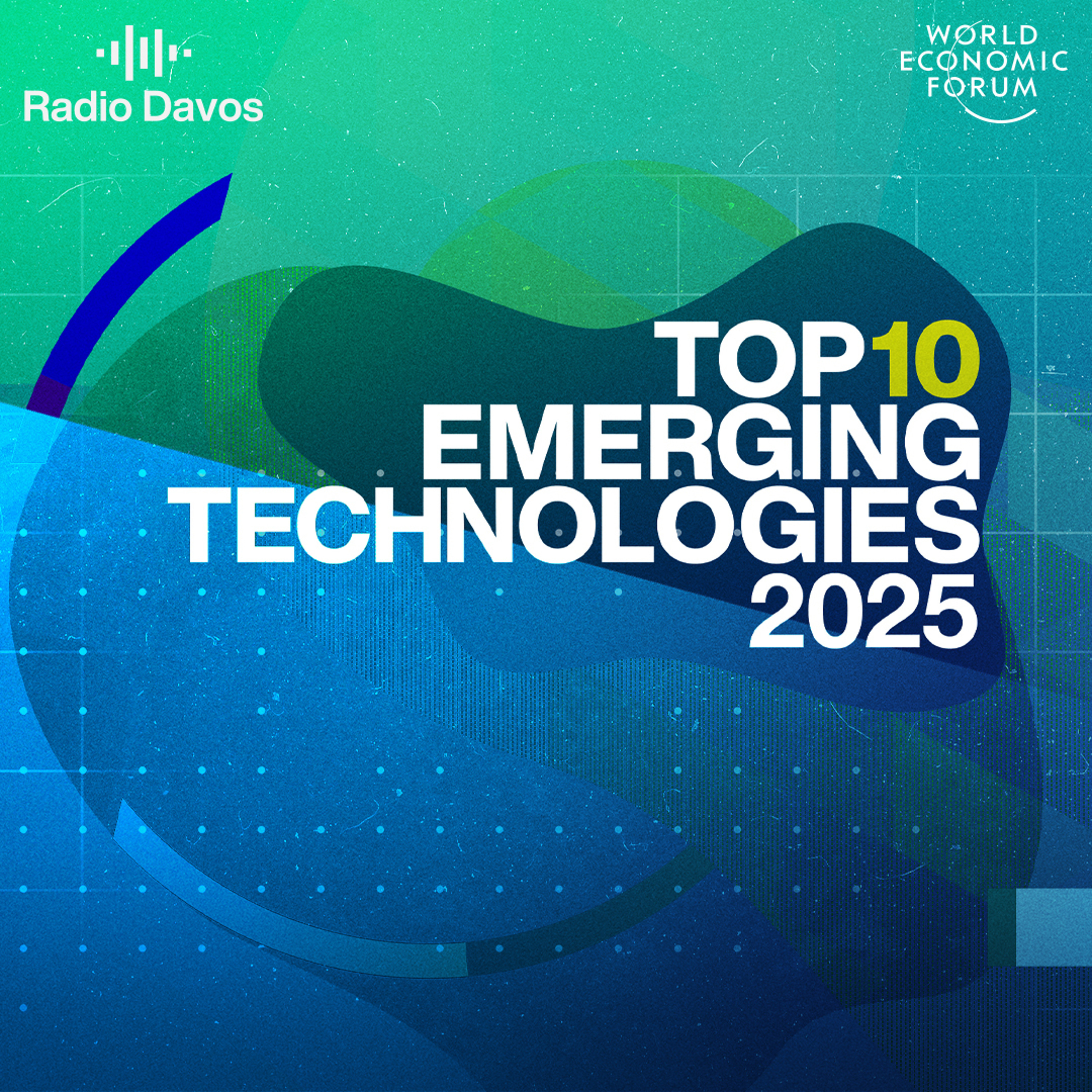
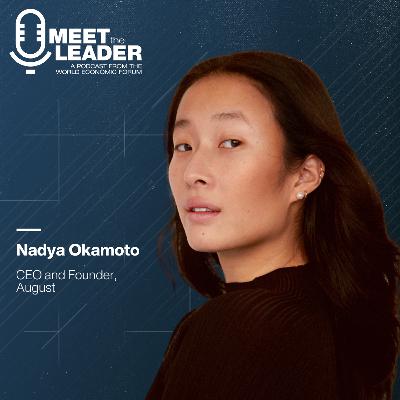
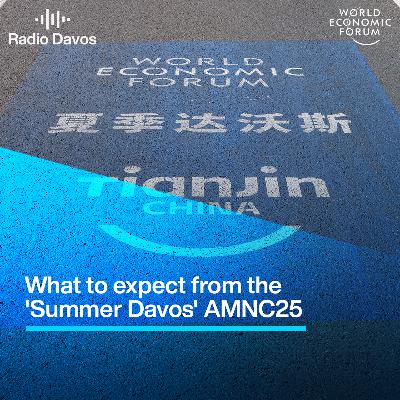
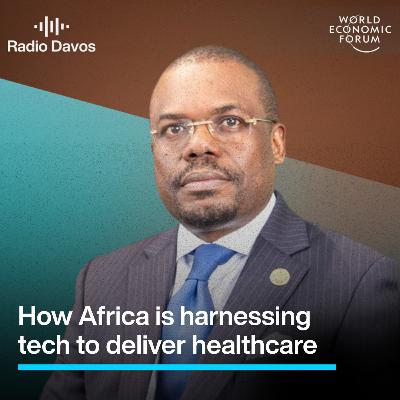

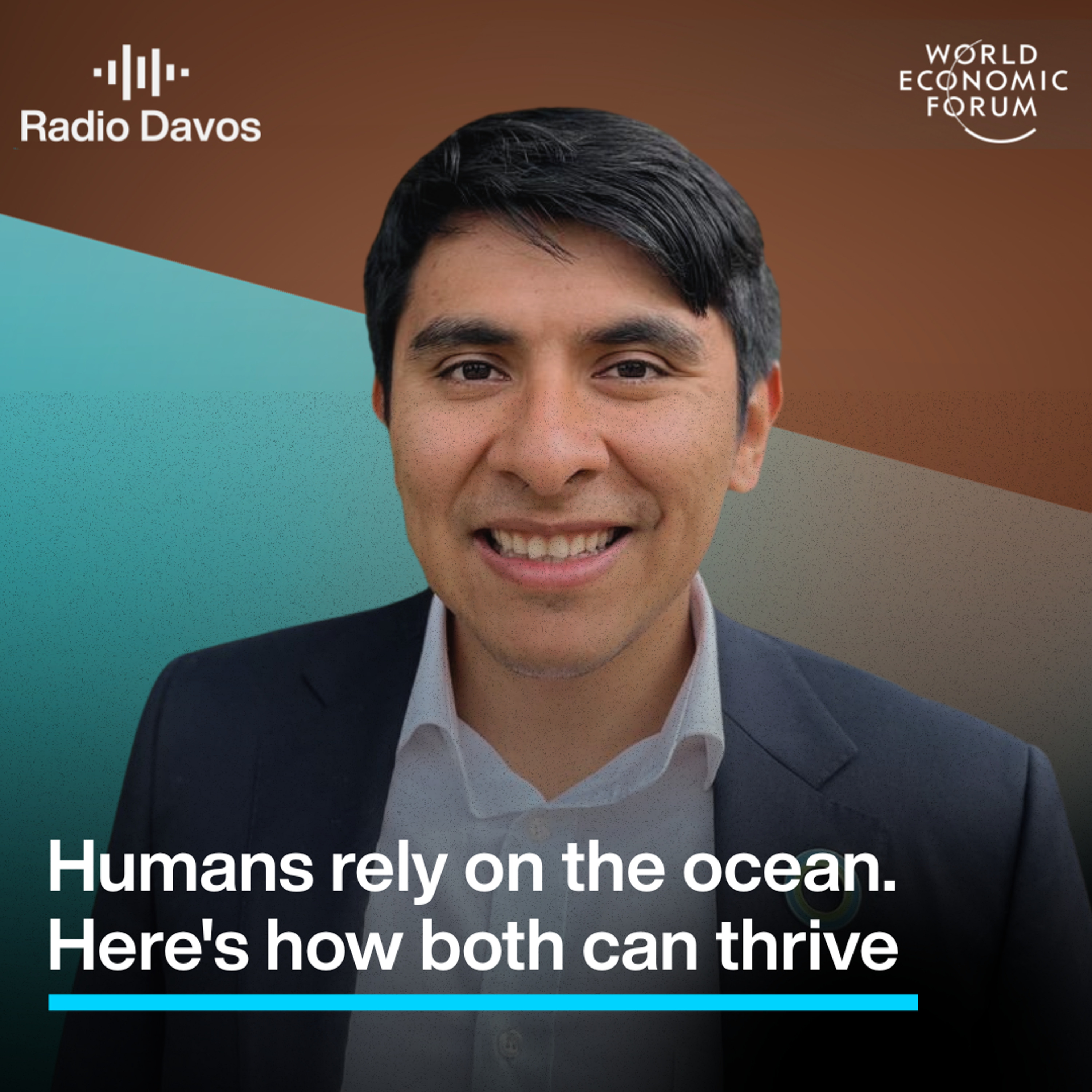
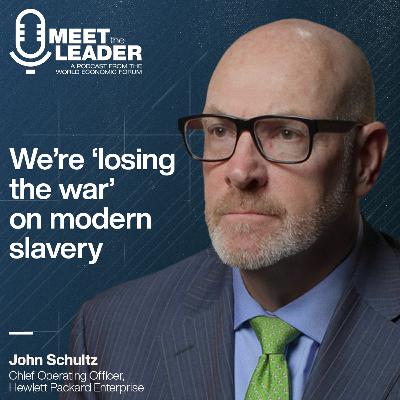
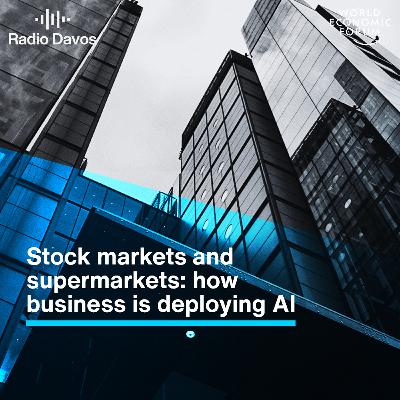
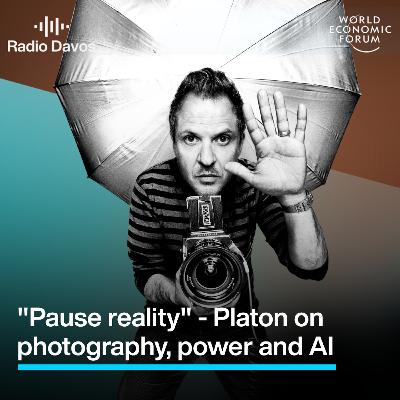
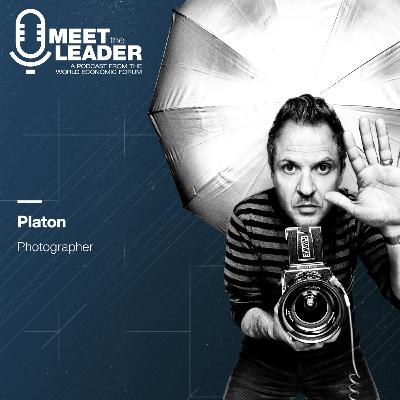
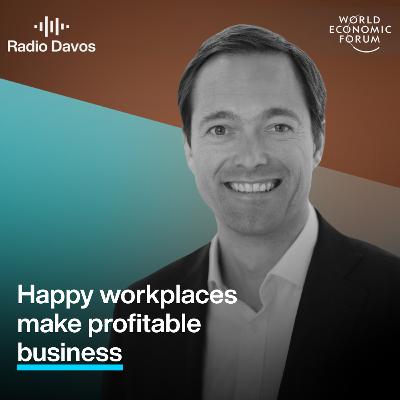
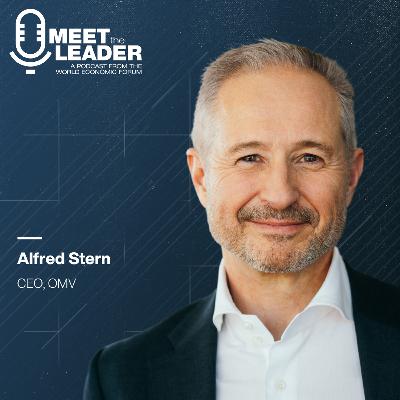
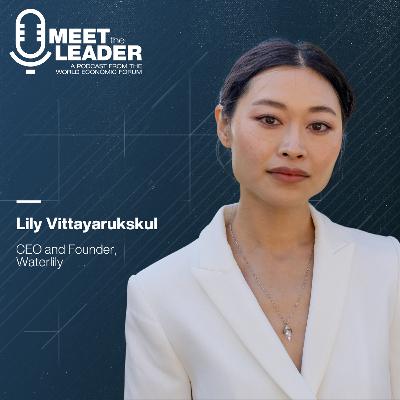
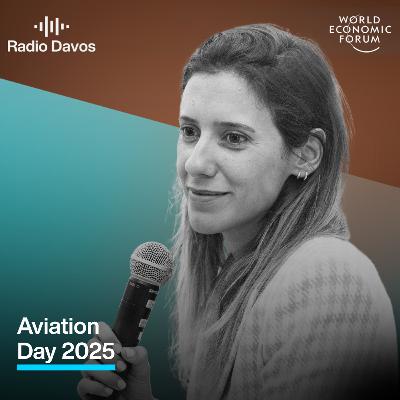
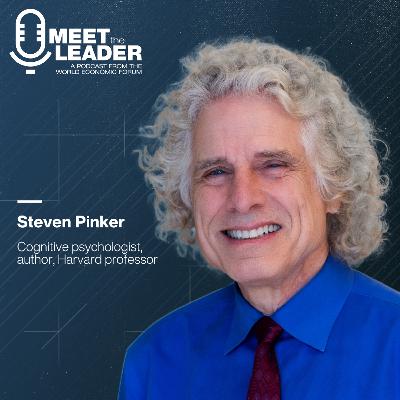
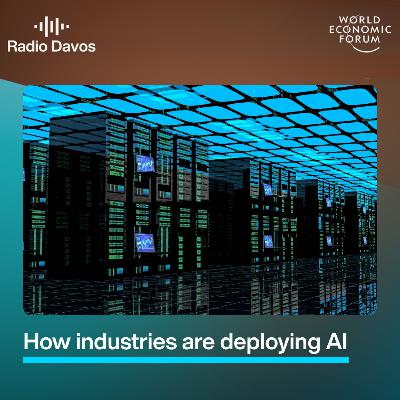
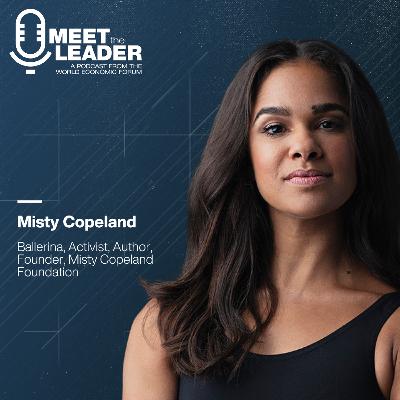
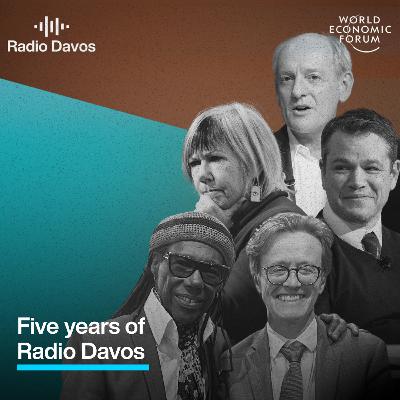
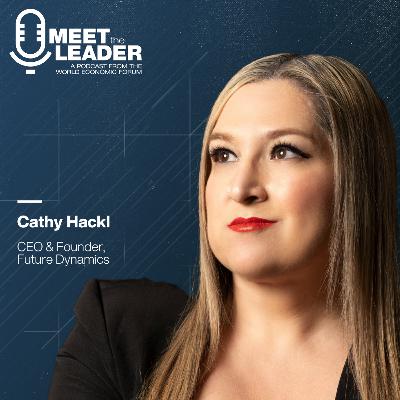
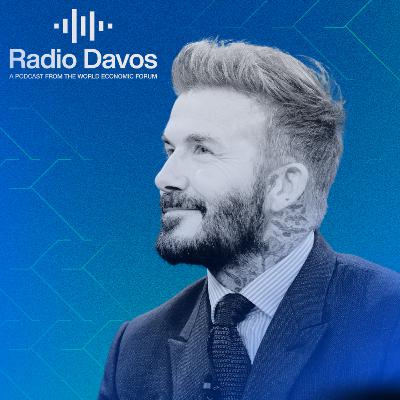



that was really moving,all said was speaking of justice for the world,for human beings, we feel proud of u nazanin
5 or 6 generations? lol so full of it. you mean 1 or 2 generations guy ceo
I miss this type of forum, I am a classical liberal but there are no good podcasts that are not on the right. pod save America is shallow for example.